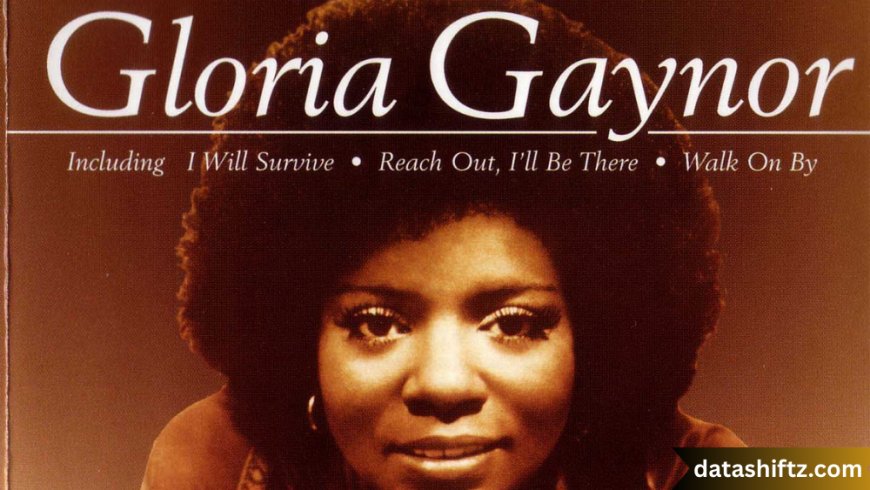Gloria Gaynor: From Disco Queen to Resilient Icon

Introduction
Few voices echo through generations quite like that of Gloria Gaynor. Born Gloria Fowles in 1943 in Newark, New Jersey, she rose from musical modesty to universal stardom, largely thanks to a singular anthem, "I Will Survive." Her journey weaves through disco’s golden era, personal and physical challenges, spiritual transformation, and a legacy that transcends music—creating an enduring impact on culture, empowerment, and artistic reinvention. This blog offers a deep dive into her early story, peak fame, resilience in adversity, and lasting influence—all structured for clarity and inspiration.
Early Roots and Ascent to Disco Fame
A Humble Beginning with Musical Foundations
Gloria Fowles was born on September 7, 1943, in Newark to musical parents; her father performed professionally while her siblings formed a gospel quartet. Though her passion sang loud, she was initially barred from joining their group simply for being a girl. She nonetheless persisted, starting in school choirs and beauty school, before entering the professional music scene by the mid-1960s with bands like The Soul Satisfiers and modest recordings on smaller labels.
Disco Breakthrough and Anthemic Success
Her solo breakthrough came in 1975 with a disco rendition of "Never Can Say Goodbye," which became one of the defining recordings of the early disco era—hitting number 9 on the pop charts and becoming a staple in dance clubs. In 1978, she released “I Will Survive”, originally a B-side, which unleashed a force of empowerment and resilience. By March 1979, it reached No. 1 on Billboard’s Hot 100, earning Gaynor the Grammy for Best Disco Recording in 1980—the only year the category existed.
From Iconic Hits to Personal Trials
Emblematic Tracks and Cultural Impact
Beyond “I Will Survive,” Gloria produced other influential tracks—“Let Me Know (I Have a Right)” and “I Am What I Am”—the latter becoming an anthem within the LGBTQ+ community and reinforcing her status as a soul and disco icon. Through the disco backlash of the 1980s, she navigated her place, transitioning gradually into R&B and pop, even as she embraced her renewed faith.
Physical Struggles and Spiritual Renewal
In 1978, a severe back injury on stage left her temporarily paralyzed. After months of recovery, Gloria battled chronic pain and underwent numerous surgeries but found the strength to continue performing—even singing her signature anthem in a back brace. Through adversity, she leaned on faith, converting to Christianity in the early 1980s—a foundation that would guide both her personal and musical evolution.
Later Years—Revival, Legacy, and Global Influence
Reinvention and Sustained Success
In the 1990s, disco revival and nostalgia propelled her back into the spotlight. Gaynor performed on Broadway, appeared in TV shows, and released dance hits in the early 2000s. In 2005, she was inducted into the Dance Music Hall of Fame—both as an artist and with “I Will Survive” honored as a record. In 2015, she received an honorary doctorate in music.
Her spiritual journey culminated in the 2019 gospel album Testimony, earning her a second Grammy in 2020—this time for Best Roots Gospel Album.
Continuing Inspiration and Recognition
Even in her late seventies and early eighties, Gaynor remained vibrant—releasing new music (an EP in 2025), performing around the world, and receiving coveted honors like being named a 2025 Kennedy Center honoree. Her legacy is especially poignant in a documentary released recently, which traces her transition from disco diva to gospel icon amid hardship, resilience, and faith.
Gloria Gaynor’s Career Phases at a Glance
| Period | Highlight |
|---|---|
| Early Years | Choirs, The Soul Satisfiers, early recordings |
| Disco Breakout | Never Can Say Goodbye (1975); I Will Survive (#1 hit, 1979, Grammy win) |
| Personal Trials | 1978 back injury, chronic pain, spiritual conversion |
| Post-Disco Era | Club hits in the '80s, acting, Broadway, dance revival |
| Gospel Reinvention | Grammy-winning album Testimony (2020) |
| Present Day | Touring globally, new music releases, documentary feature, enduring legacy |
Key Lessons from Gloria Gaynor’s Journey
-
Resilience defines her legacy — She transformed pain into power, singing through setbacks.
-
Music as empowerment — I Will Survive became a global anthem for strength across communities.
-
Evolution matters — She transitioned from disco to gospel authentically, finding purpose in faith.
-
Timeless creativity — At 81, she still creates new music, touring and connecting with fans.
-
Cultural transcendence — Her influence spans civil rights, LGBTQ+ empowerment, and spiritual solace.
-
Recognition across eras — From Grammys to Kennedy Center honors, her story continues to be celebrated.
Conclusion
Gloria Gaynor’s story is more than a musical biography—it's a narrative of perseverance, transformation, and cultural resonance. From the packed dance floors of the disco era to intimate gospel expressions, her powerful voice has transcended time, uniting and uplifting people worldwide.
Whether you're a longtime fan or newly discovering her, the ethos behind her fame is clear: adversity can fuel artistry, and music can heal, unite, and inspire life-changing strength. Gloria Gaynor isn’t just surviving—she’s defining what it means to truly survive.





























